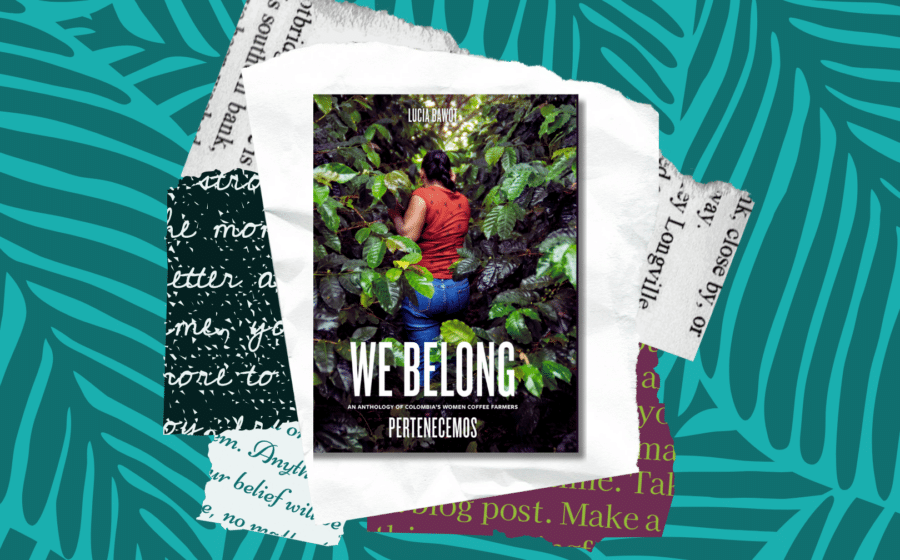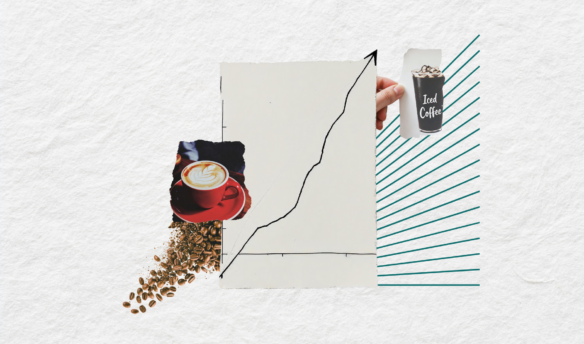Lucia Bawot’s book opens with a poignant observation: “We are all told stories as children that shape us in ways we don’t understand, long after the details of each twist and turn have faded from our memory.”
Bawot is the author of “We Belong: An Anthology of Colombian Women Coffee Farmers,” released in the spring of 2023. Initially, the book was meant to be a photo anthology, drawing on Bawot’s years as a photographer and storyteller, working with coffee companies to capture content from farmers. Bawot realized that stories were missing from her portfolio and wanted to capture more women working in Colombia, where she was born.
But as she started visiting women farmers and pickers, she realized she wanted to capture more. Along with intimate photos reflecting everyday life for 25 women coffee farmers in Colombia, the book also includes anecdotes from the women—not necessarily about coffee, but about their childhoods and the circumstances of their lives that led to this moment.
“We Belong” is transformative and prescient—a necessary book about coffee. We sat down with Bawot to discuss how the book came to be and the most significant lessons she learned not just about women farmers but how she grew to understand herself and her role in coffee.
Fresh Cup: What inspired you to write this book?
Lucia Bawot: I can’t say that I was initially inspired to publish or write a book about coffee. At first, my motivation came from a place of frustration and disappointment towards the coffee industry. Because after nine years of working from within, I was perceived as an outsider, even though I identified myself as a coffee person; my talents and skills in photography, videography, and storytelling where been used as simple tools, but I felt I didn’t have a voice or an opinion that counted. I was INVISIBLE!
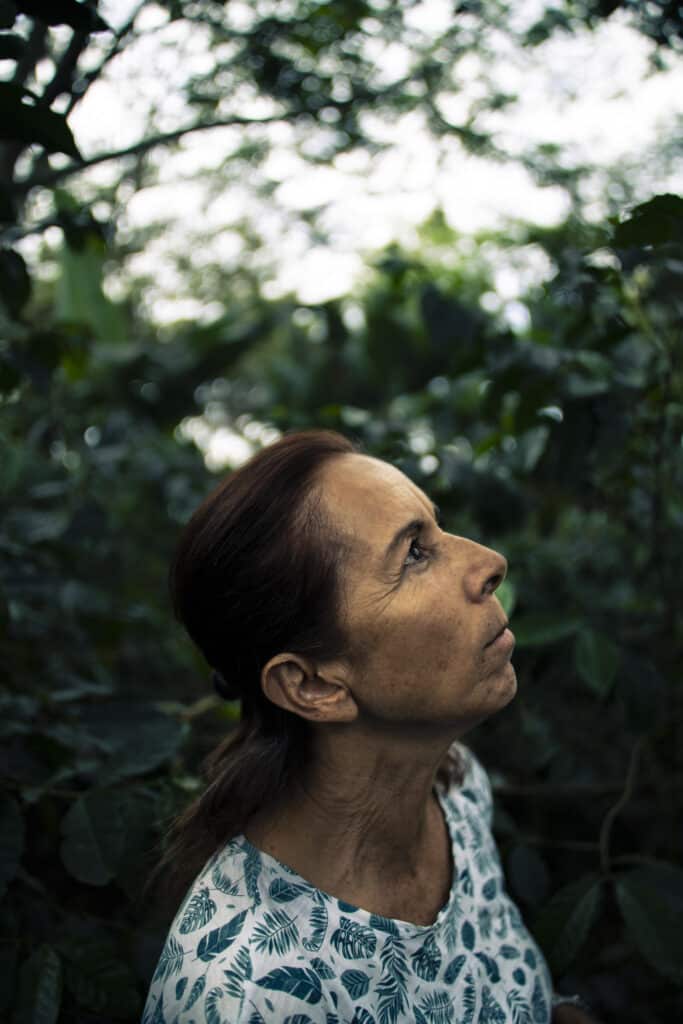
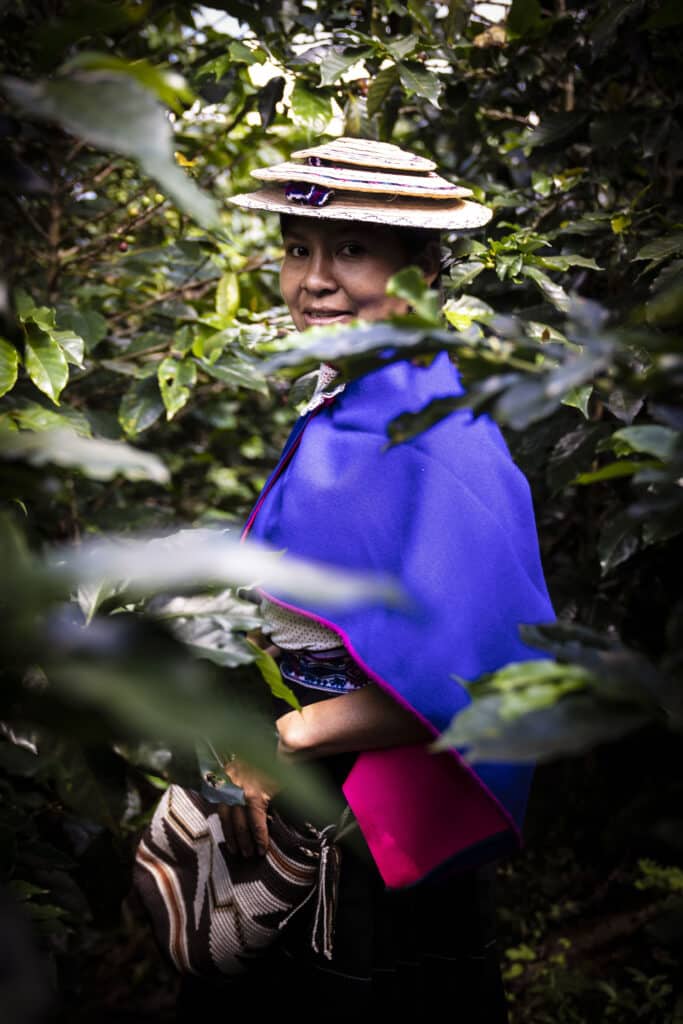
So rather than growing angrier, I decided to ask myself: what can I create that reflects my opinion, my way of seeing, and my journey after all these years of pouring myself into this industry? After weeks of analyzing my portfolio full of stories of coffee farmers, it became crystal clear to me the lack of women’s voices, faces, and protagonists in the stories. In my portfolio, they were as invisible as I felt—their opinions were not there, and mine were not also. So there I was, sitting face to face with this important and unexplored subject: Women coffee farmers.
Approaching that huge topic seemed daunting because women coffee farmers and pickers are not a monolith. Knowing that making a book about women coffee farmers globally would take me decades, I approached this subject matter from where I grew up—from my roots, my culture, from where I was living at the time: COLOMBIA. And this is how I began documenting and interviewing women coffee farmers back in 2019 in Quindio, Colombia.
I tried my best to visit a diverse group of women from the north to the south of Colombia. I visited 62 women coffee farmers and pickers, and only 25 stories made it to the book. “We Belong” is by no means a representative sample, but I knew something needed to change regarding the foundation stories of the Colombian coffee culture that keeping been passed on because those stories don’t represent or carry the voices of Colombian women farmers and pickers. “We Belong” is a platform to celebrate women’s voices and show the coffee industry that there are other ways of belonging to this coffee world than those handed to us.
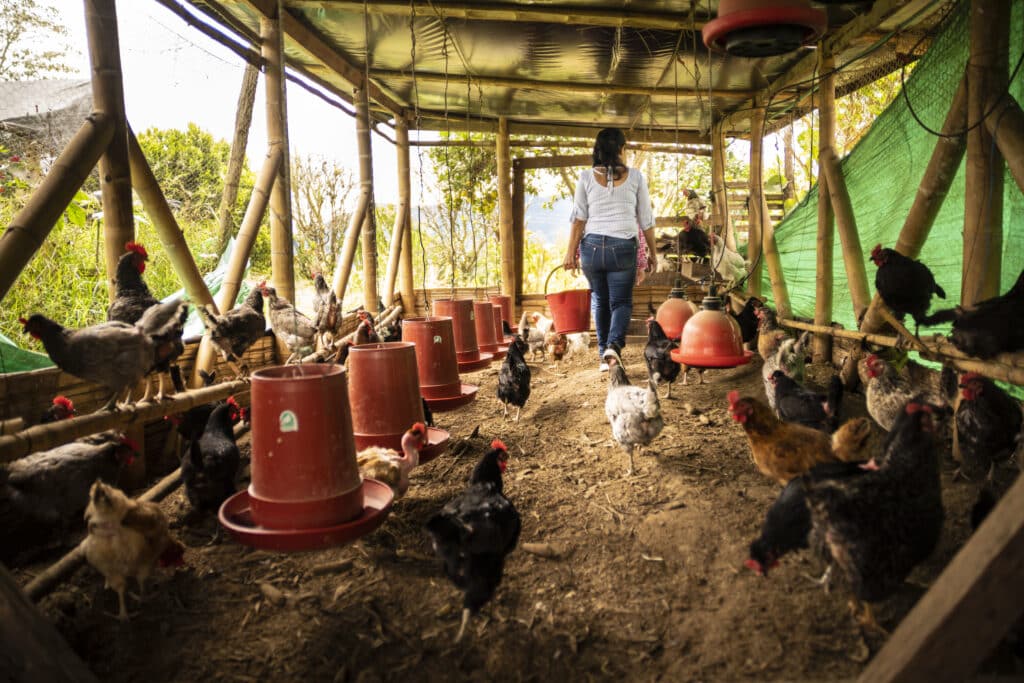

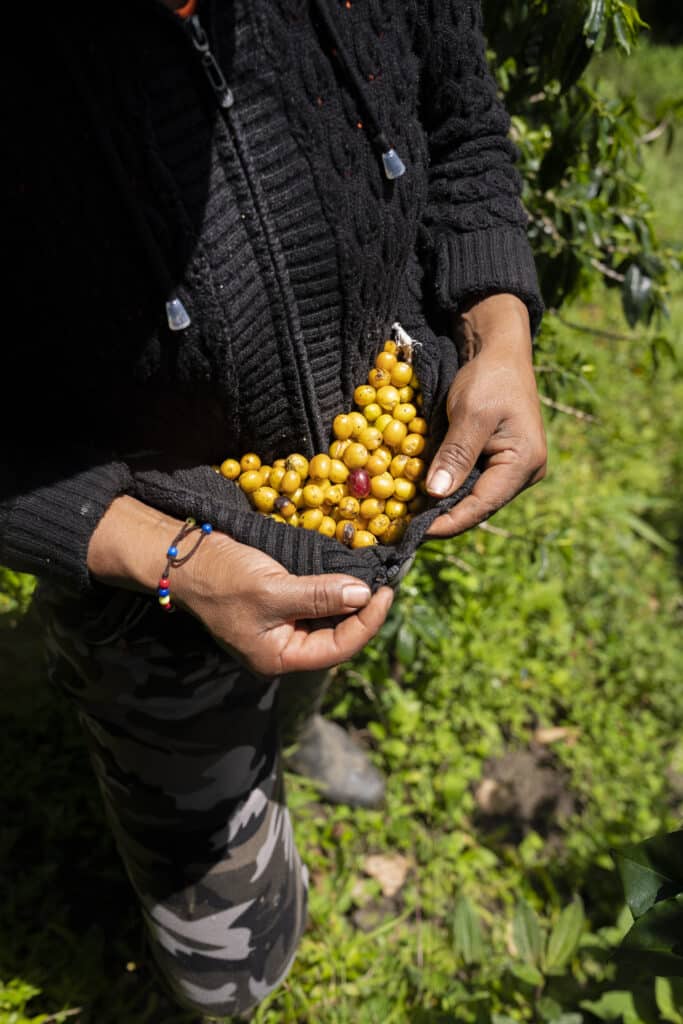
In the introduction, you talk a lot about yourself and your family. How did you start to understand your history better through writing and photographing this book?
I believe to make something universal, you have to dig deep into who you are and tap into your insecurities and fears of being vulnerable because that’s when you can create something people relate to and feel connected to. For me, those were: not feeling proud of my culture or my roots, of being a woman, of being Colombian, repeating to myself many times how I was not Colombian enough, of knowing coffee was in my blood, but feeling I was not allowed to say that I am the granddaughter of a powerful duo of coffee farmers in the plural because my maternal grandmother was a coffee farmer herself despite this not been spoken in my family.
I wouldn’t say that I started to understand my history through writing or photographing for this book. What unlocked this understating was listening to these women and realizing that each of their stories embodied my maternal grandmother’s history in one way or another. It was a reminder that sometimes, the most unexpected situations are the ones that teach you the most. Thanks to these women, I healed many of my insecurities as a woman and answered many questions. Now I’m starting to tell myself a different and more progressive story, one where I say aloud: I’m proud of being a Colombian woman with coffee ancestors.
What has the response to the book been like?
If there’s something I’ve gathered is that “We Belong” makes people cry—I’m still trying to figure out if this is a good or a bad thing.
From the comments, interactions, and reactions from the people that attended any of my four book launch events, or the people that have read the book and have sent me messages and audio messages, I feel like “We Belong” managed to tap into a new level of human connection, and I love that! The book shows what makes our coffee industry alive—humans—and the invisibility of their hardships and triumphs.
Today, “We Belong” has reached the hands of people in Colombia, Poland, Mexico, Costa Rica, the U.K., Canada, Panama, Germany, Denmark, the U.S., Brazil, and Turkey; more than 14 coffee digital and print media outlets have published articles and podcast episodes related to the book. My goals are to get the book in the hands of more non-coffee people, to have more opportunities to exhibit photography, and engage with more platforms to keep spreading the revolution of belonging.
What did you aim to capture in the photos you took? What kind of moments were you looking to preserve and share?
I wanted the photography to balance my style (a duality of artistic and intimate images) but prioritize showcasing coffee culture and the beauty and strength of these women, from the broad ideas to the more detailed individualistic point of view (the personality and soul of each of these women).
The most powerful photos come to you when you let the process of taking your camera out and clicking become secondary. Instead, focus on getting to know your subject, building trust, and letting them have the autonomy to be photographed as they want.
You divide the book into sections and themes based on life circumstances—why did you decide to divide the book this way?
One of the biggest challenges was designing the book. I remember asking my team for guidance or a magic secret to know how to decide on the structure for the book, the number of chapters, on how to weave all the stories.
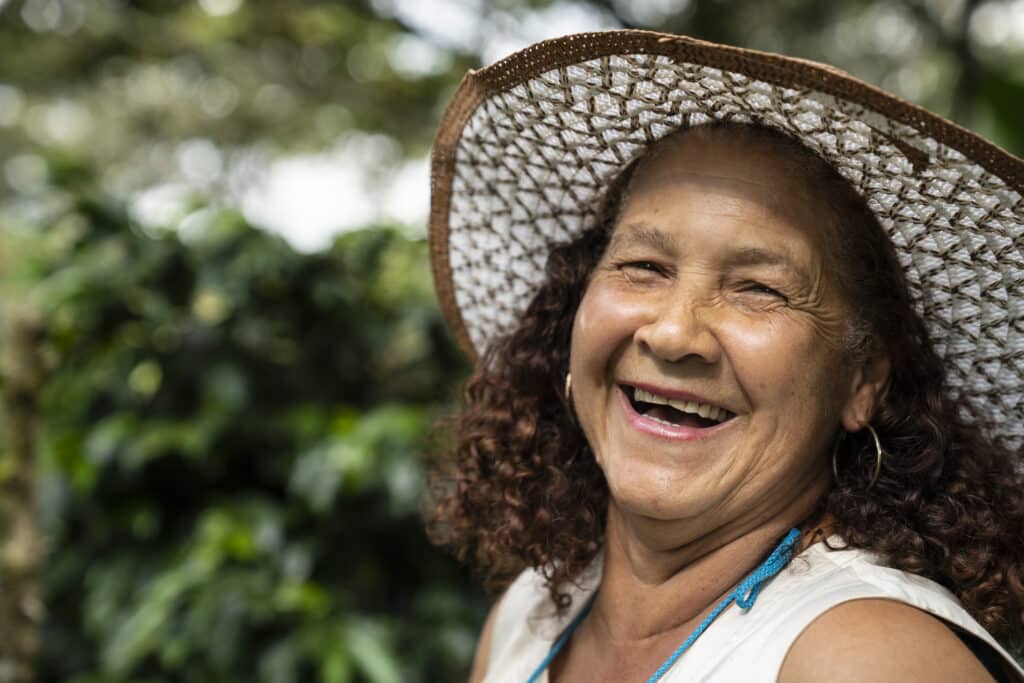
The answer I heard most was: “It will come to you; you’re the one with the answer. And that was true—when I realized how my grandmother’s life experiences embodied and fit so well with the life experiences of most of the women I visited, I decided to take some of her life’s hardships and triumphs—each a facet of the human experience—to create a narrative that connects the seven chapters of “We Belong.” The chapters range in theme from the heartbreaking chapter entitled “Broken Childhood” to the inspirational “Quiet Ripening.”
Perhaps my favorite quote is comparing human existence to coffee growing: “Human ripening requires the same extensive and beautiful process of quiet becoming often in the face of the unknown.” There’s a feeling of movement and growth inherent throughout the book, even though, by the nature of books and photos, you’re capturing a moment in time—how did you think about capturing transformation and change?
To speak about transformation and change, I need to touch on the importance of storytelling. To paraphrase Sharon Blackie: “The act of telling and passing on stories and listening to those stories is not a mere act; it’s hard-wired into us; it’s a function of our biology and the way our brains have evolved over time. These stories shape not just our own lives but the world around us. Stories are the narrative of our culture.”
Stories shared and passed on from generation to generation intrinsically are about transformation and change. But are the stories that have been passed on about the humans behind Colombian coffee farms a good representation? Are the stories we pass down inclusive of everyone involved in coffee production? And most importantly, have these stories evolved and shown us the full spectrum of possibility?
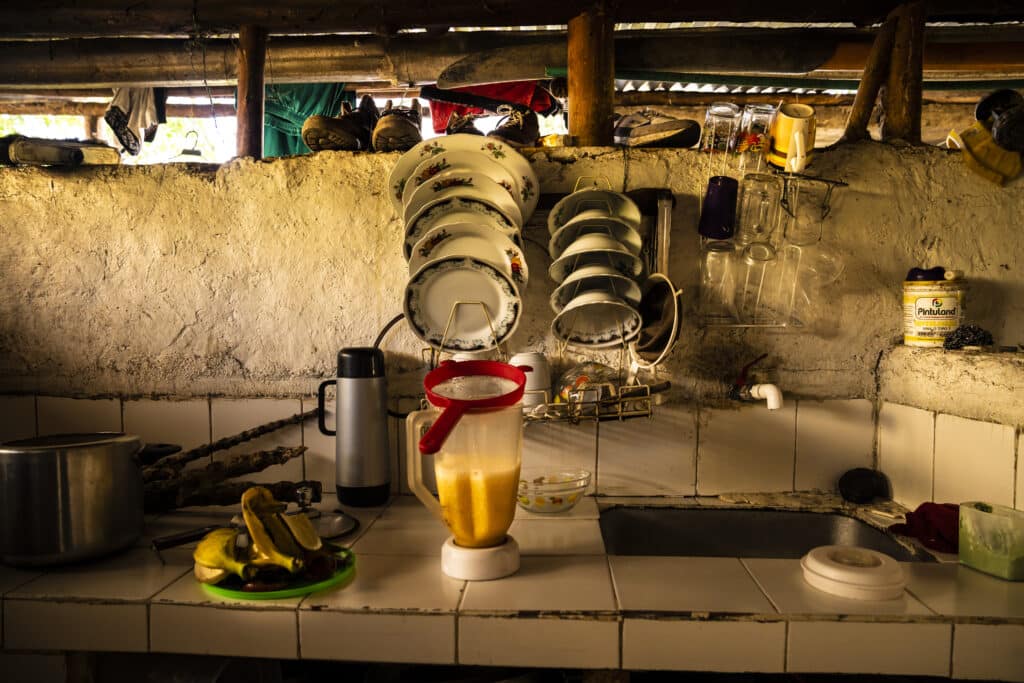
I realized that something needed to be transformed and changed regarding what, how, and who is telling the stories of Colombian women coffee farmers and pickers. Because we (as a coffee industry) cannot pretend to seek change, to develop without knowing the beginning, the whole story, without not even having listened to and taking the opinions of all of the actors within coffee production.
This was how I felt every time I interviewed each woman. Every time my eyes were ready to tell my finger to click, every time I typed a word. I wanted “We Belong” to explore those unspoken topics, to tell the stories of Colombian women coffee farmers from perspectives that rarely had been told before. Most importantly, I wanted the book to let women tell their stories. Because we need to get to know each other as humans before we can think about talking about coffee. That common ground is what’s going to help connect the dots and get a better understanding of the future of our industry.
Photos courtesy of Lucia Bawot. You can learn more about “We Belong” here.



